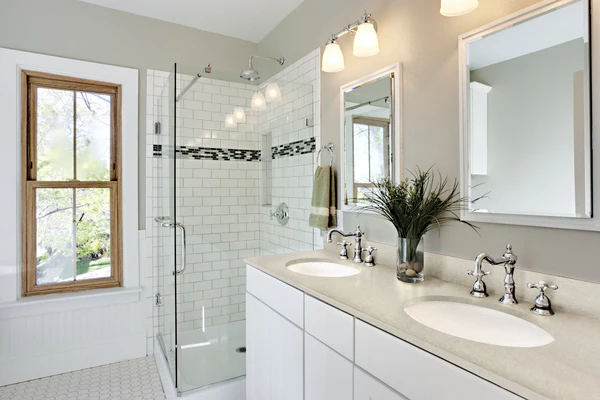When choosing quartz countertops, one of the first decisions you’ll face is the thickness: 2cm vs 3cm quartz. Jonathan Scott provides a detailed comparison to help you determine which option is best for your home. Whether you’re seeking elegance, durability, or cost-efficiency, this guide has the answers.
The Basics: What Do 2cm and 3cm Mean?
The terms 2cm quartz and 3cm quartz slabs refer to the thickness of the material:
- 2cm Quartz: Roughly 0.8 inches thick, this is a thinner, lighter option.
- 3cm Quartz: At 1.2 inches thick, this is the standard choice for most residential countertops.
Appearance and Style
- 2cm Quartz: Offers a sleek, minimalist look that works well in contemporary designs. Pairing it with a mitered edge can create the illusion of a thicker slab.
- 3cm Quartz: Provides a substantial and luxurious feel. The extra thickness adds depth and complements traditional and high-end kitchens.
Durability and Strength
- 2cm Quartz: While durable, it requires added support for large spans or overhangs, such as plywood backing or brackets.
- 3cm Quartz Countertops: Naturally stronger and more resistant to bending or cracking, making it ideal for busy kitchens or islands with significant overhangs.
Cost Differences
- 2cm Quartz Slabs: Typically more affordable due to the reduced material cost. However, additional expenses for support structures can offset these savings.
- 3cm Quartz: Higher upfront cost, but installation is often simpler as it doesn’t require extra support.
Installation Considerations
- 2cm Quartz: Lightweight and easier to handle, making it suitable for vertical applications like backsplashes.
- 3cm Quartz: Heavier and sturdier, ideal for horizontal applications such as countertops and islands.
Environmental Impact
Both options are eco-friendly when sourced responsibly. However, using engineered quartz countertops reduces waste by repurposing stone byproducts.
Jonathan Scott’s Pro Tips
- Evaluate Your Design: For a sleek, modern aesthetic, go with 2cm quartz. For a more classic, robust look, 3cm quartz is the way to go.
- Consider Functionality: High-traffic kitchens benefit from the added durability of 3cm slabs.
- Factor in Cost: If budget is a concern, weigh the savings of 2cm slabs against the cost of added support.
Call to Action
Deciding between 2cm vs 3cm quartz? Let Jonathan Scott’s insights guide your choice. Explore local suppliers and design the countertop that perfectly suits your style and needs.


